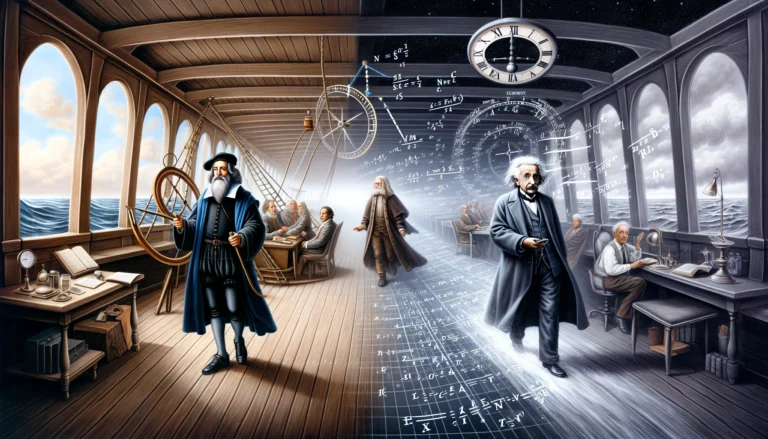Did Einstein or Galileo discover the Relativity Principle?
Galileo did! But, it was kind of a trick question, but Galileo does deserve more credit than he gets. Galileo came up with the Relativity Principle, and Einstein centuries later extended it. In the 17th century, Galileo conducted experiments that showed the laws of physics are the same regardless of an object’s constant motion. This is the essence of the Relativity Principle. For example, if you’re on a smoothly sailing ship , as long as the motion is constant, you won’t be able to tell if you’re moving or not. This is a great trivia question because even textbooks frequently credit Einstein with it. To great shame, many books ignore this nuance.
Einstein built upon it and, in 1905, published his groundbreaking work on his special theory of relativity. It incorporated the concept of constant motion from Galileo’s work but also introduced revolutionary ideas about the speed of light and the relationship between space and time. This is when Einstein introduced the world to is his famous E=mc2 formula, which simply says:
“energy equals matter, and matter equals energy.”
After another decade, he published his general theory of relativity which added gravity to the mix. His work helped pave the way to understanding how the universe expands. To learn more about the motion of the universe, take the 9-minute deep dive: The Expanding Universe Explained.









